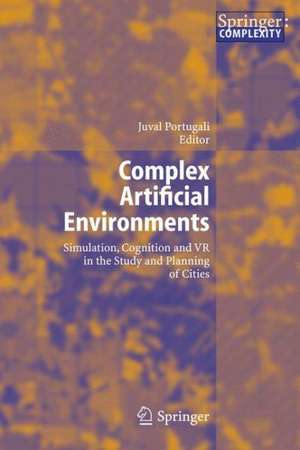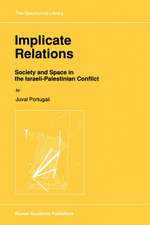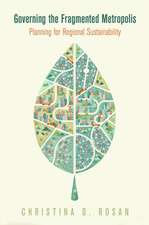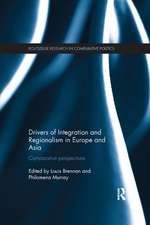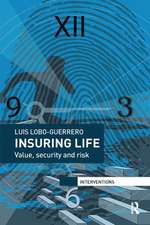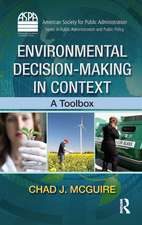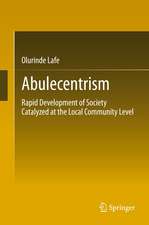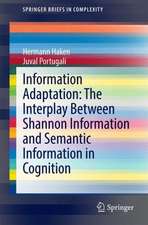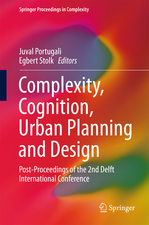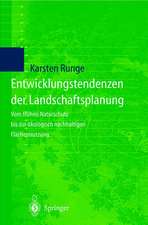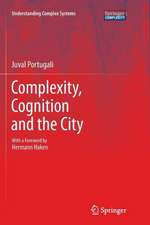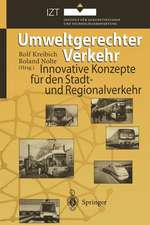Complex Artificial Environments: Simulation, Cognition and VR in the Study and Planning of Cities
Editat de Juval Portugalien Limba Engleză Paperback – 12 feb 2010
| Toate formatele și edițiile | Preț | Express |
|---|---|---|
| Paperback (1) | 946.72 lei 6-8 săpt. | |
| Springer Berlin, Heidelberg – 12 feb 2010 | 946.72 lei 6-8 săpt. | |
| Hardback (1) | 952.72 lei 6-8 săpt. | |
| Springer Berlin, Heidelberg – 16 noi 2005 | 952.72 lei 6-8 săpt. |
Preț: 946.72 lei
Preț vechi: 1154.54 lei
-18% Nou
181.18€ • 186.91$ • 153.34£
Carte tipărită la comandă
Livrare economică 04-18 martie
Specificații
ISBN-10: 3642065295
Pagini: 340
Ilustrații: XVIII, 322 p.
Dimensiuni: 155 x 235 x 18 mm
Greutate: 0.48 kg
Ediția:Softcover reprint of hardcover 1st ed. 2006
Editura: Springer Berlin, Heidelberg
Colecția Springer
Locul publicării:Berlin, Heidelberg, Germany
Public țintă
ResearchCuprins
Recenzii
"The book represents the current state of thinking in the use of complex systems theory with geospatial technologies for understanding cities. It is organized into five coherent parts. … the book as a whole a unique reference source. In summary, Portugali’s book can be valuable for researchers who deal with the modeling of complex land-use change processes in urban and regional contexts. It can also be used for advanced seminar courses on topics in geosimulation." (Suzana Dragicevic, Journal of Regional Science, Vol. 48 (2), 2008)
Textul de pe ultima copertă
Descriere
Juval Portugali The notion of complex artificial environments (CAE) refers to theories of c- plexity and self-organization, as well as to artifacts in general, and to artificial - vironments, such as cities, in particular. The link between the two, however, is not trivial. For one thing, the theories of complexity and self-organization originated in the "hard" science and by reference to natural phenomena in physics and bi- ogy. The study of artifacts, per contra, has traditionally been the business of the "soft" disciplines in the humanities and social sciences. The notion of "complex artificial environments" thus implies the supposition that the theories of compl- ity and self-organization, together with the mathematical formalisms and meth- ologies developed for their study, apply beyond the domain of nature. Such a s- st position raises a whole set of questions relating to the nature of 21 century cities and urbanism, to philosophical issues regarding the natural versus the artificial, to the methodological legitimacy of interdisciplinary transfer of theories and me- odologies and to the implications that entail the use of sophisticated, state-of-t- art artifacts such as virtual reality (VR) cities and environments. The three-day workshop on the study of complex artificial environments that took place on the island of San Servolo, Venice, during April 1-3, 2004, was a gathering of scholars engaged in the study of the various aspects of CAE.
